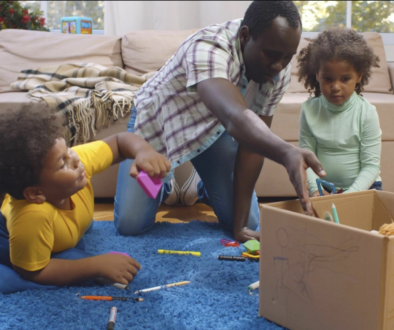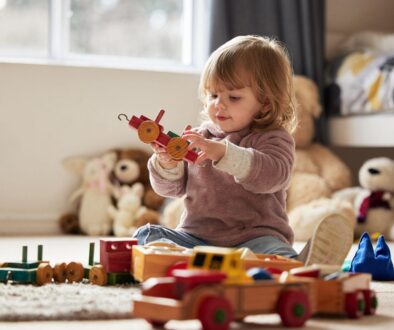Promoting Empathy and Kindness

Children can learn empathy and kindness! While they may not fully grasp the complexities of these concepts like adults do, children can understand and demonstrate empathy and kindness in their own way. Developing these skills in children is important to their social and emotional development.
Here are some strategies to help foster these qualities in your child:
Model: Children learn by observing and imitating the behaviors of the people around them, particularly their caregivers. When parents model empathy and kindness in their interactions with others, children are more likely to mimic these behaviors in their own interactions.
Teach Basic Emotions: While children may not have a sophisticated understanding of emotions, they can recognize basic emotions like happiness, sadness, and anger. By helping them identify and label their own emotions, parents can lay the groundwork for developing empathy towards others.
Read Books about Kindness and Empathy: Choose children’s books focusing on kindness, empathy, and compassion themes. Reading age-appropriate stories together can provide opportunities to discuss emotions and moral concepts in a relatable way.
Create a Loving and Supportive Environment: Foster a nurturing and supportive environment at home where your child feels safe, loved, and valued. Encourage positive communication, empathy, and cooperation among family members.
Use Positive Reinforcement: Parents can encourage and reinforce empathetic and kind behavior in children by praising and acknowledging their efforts. They can also provide positive feedback to reinforce these behaviors when children demonstrate kindness, such as sharing a toy or comforting a friend.
Provide Opportunities for Acts of Kindness and Practice Gratitude: Give your child opportunities to engage in acts of kindness, such as helping to pick up toys, sharing snacks with a friend, or offering comfort to someone upset. Encourage your child to express gratitude for the things they have and the kindnesses they receive from others. Help them develop a habit of saying “thank you” and showing appreciation for the people and things in their lives.
While children may still be developing their empathy and kindness skills, with support and guidance from caregivers, they can learn to understand and demonstrate compassion, consideration, and empathy toward others as they continue to grow and develop. Incorporating these strategies into your daily interactions with your child can help nurture their natural capacity for empathy and kindness, laying the foundation for healthy social relationships and emotional well-being.





